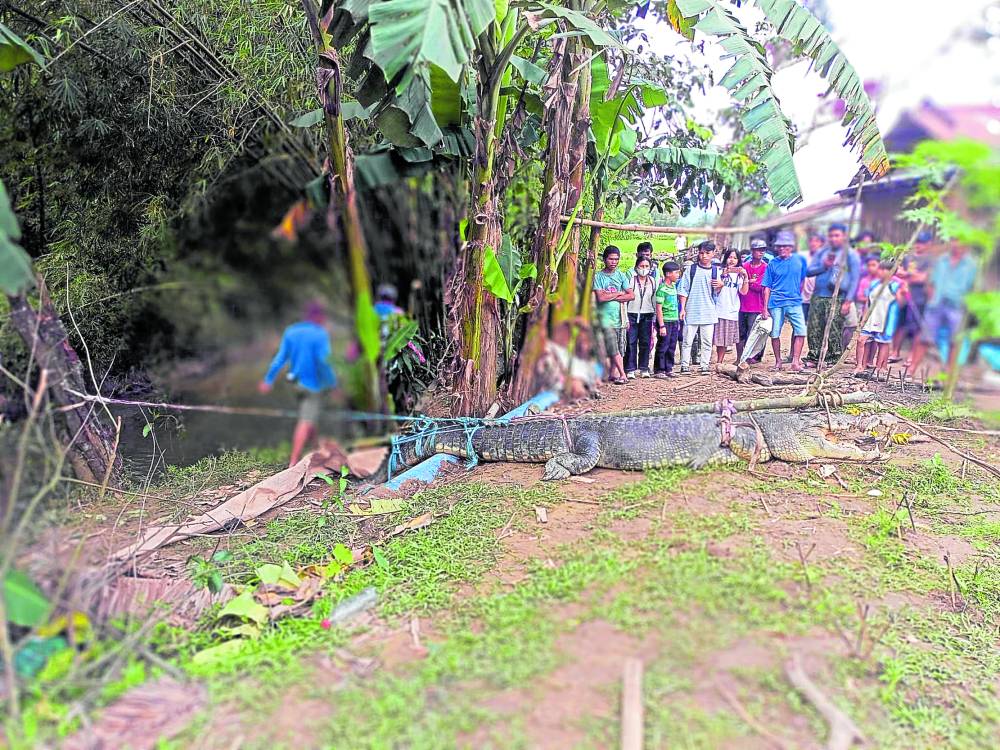In Palawan town, wild crocodile caught after attacking villager

SECURED Residents of Barangay Sumbiling in Bataraza, Palawan, on Thursday check on a 15-foot long (4.57 meters) saltwater crocodile caught in their village the previous night. The reptile, however, died on Thursday night as wildlife rescuers were preparing to fetch it from Bataraza so it could undergo a medical examination. —JOVIC FABELLO/CONTRIBUTOR
PUERTO PRINCESA CITY — Residents in Bataraza town, Palawan province, captured a 4.57-meter (15-foot) long saltwater crocodile (Crocodylus porosus) on Wednesday night after it attacked a villager in Barangay Sumbiling.
Jovic Fabello, spokesperson for the Palawan Council for Sustainable Development Staff (PCSDS), on Thursday said resident Johnny Balbada was about to fetch water from Sumbiling River around 8 p.m. when the crocodile started charging at him.
Balbada managed to run away and seek help from other villagers to capture the adult male saltwater crocodile, which is 0.7 m (2.3 ft) wide, Fabello said in a phone interview.
“We went there to check on the crocodile and found out that it had a wound [in its upper belly], apparently from a struggle when it was captured,” Fabello said.
“After consulting with the Palawan Wildlife Rescue and Conservation Center (PWRRC) and the Department of Environment and Natural Resources, we decided to rescue it,” he added, noting that the reptile had turned “aggressive and dangerous.”
Article continues after this advertisementBut Fabello, in a message to the Inquirer on Thursday night, said he was informed by their staff in Bataraza that the crocodile had died at 8 p.m.
Article continues after this advertisementThe news came as PWRCC personnel were preparing to fetch the crocodile from Bataraza and bring it to Puerto Princesa for a medical examination.
Fabello said the reptile would undergo necropsy to determine the cause of its death.
He said there was still a “viable population” of crocodiles in the towns of Bataraza, Balabac, Rizal and Quezon, all in southern Palawan.
Crocodiles start breeding from January to June or July, depending on weather conditions, Fabello said.
“So that is the time that they become active to start looking for mates and establish their territories,” he said.
Fabello said it was the second time a crocodile was captured in the same area since 2008.In September last year, a 2.62-m (8.6-ft) long crocodile was caught and turned over to authorities by a resident of Barangay Puring, also in Bataraza.
The reptile, at 0.39-m (1.3 ft) wide, was turned over to the PCSDS and eventually released back to its natural habitat.
In 2018, wildlife experts from the PWRRC caught a 4.75-m (15.6-ft) long crocodile in Balabac town after it reportedly attacked and killed a fisherman.